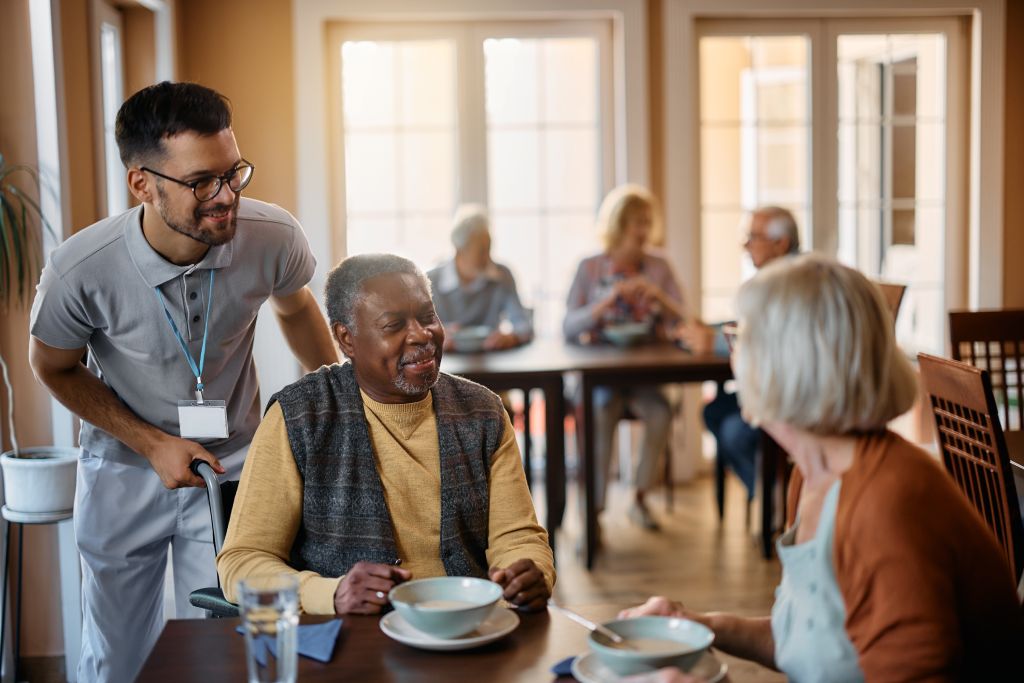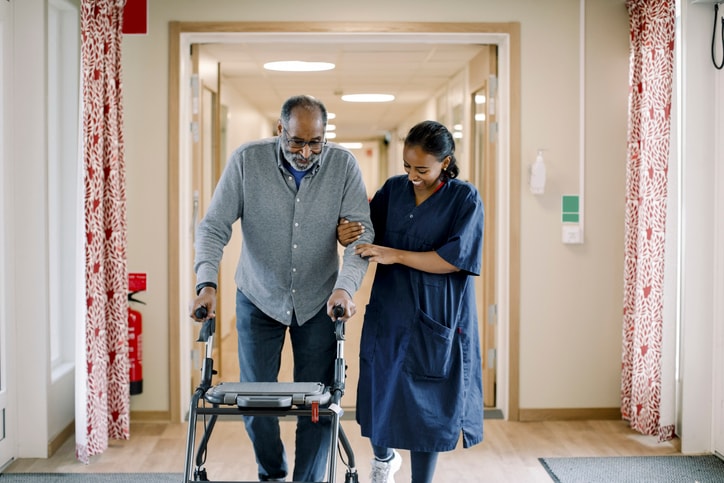Just How Helped Living Facilities Enhance Quality of Life for Those With Mental deterioration
The integration of interesting programs and family members involvement better enriches the locals' experience. The complexities of mental deterioration care continue to progress, motivating a closer assessment of how these facilities adapt and innovate to fulfill the obstacles dealt with by homeowners and their family members.
Personalized Care Plans
(Dementia Care Charlotte)In several instances, individuals with dementia need tailored support that addresses their distinct needs and preferences. Customized treatment strategies are important in assisted living setups, as they guarantee that each resident obtains ideal focus and services. These strategies are created collaboratively, entailing health care specialists, caretakers, and member of the family to develop a thorough summary of the individual's case history, cognitive abilities, and individual interests.
A well-structured customized care plan normally includes particular goals associated to wellness monitoring, daily tasks, and social interaction. It represents the person's cognitive decline while promoting self-reliance and dignity. Routine assessments and updates to the treatment plan are vital, as they enable modifications based upon the homeowner's developing condition and preferences.
Key components of these plans commonly entail medicine administration, behavior assistance methods, and dietary guidelines customized to the person's requirements (Memory Care). By concentrating on customized care, assisted living centers can foster a supportive setting that enhances the lifestyle for people with dementia, eventually adding to their overall health and happiness. This customized technique values the uniqueness of each homeowner, ensuring they obtain the compassionate treatment they call for

Involving Tasks and Programs
Involving locals in meaningful tasks and programs is essential for boosting the lifestyle for people with dementia. These activities not just offer enjoyment however likewise boost cognitive function and advertise social communication, which can reduce feelings of seclusion typically experienced by homeowners.

Furthermore, tailored programs are essential in ensuring that each resident's distinct choices and capacities are recognized. This customized technique motivates involvement, boosts self-worth, and gives a feeling of success.
In addition, normal assessments of locals' interests can assist personnel customize and adapt activities to better suit developing needs. By focusing on appealing activities and programs, assisted living facilities can significantly improve the overall experience and psychological health and wellness of people dealing with dementia.
Safe and Encouraging Setting
Producing a safe and helpful environment is essential for people with mental deterioration, as it directly impacts their well-being and top quality of life. Aided living facilities are created with details functions that promote safety and security while promoting a complacency and comfort. These environments focus on ease of access, with formats that lessen confusion and encourage freedom, enabling locals to navigate their surroundings more quickly.
Precaution, such as protected entries and departures, stop roaming and unauthorized accessibility, which are important factors to consider for individuals with dementia (Assisted Living). Team member are educated to acknowledge the one-of-a-kind demands of citizens, providing tailored assistance and supervision to ensure their safety. Furthermore, the consolidation of calming colors and familiar things can help in reducing anxiousness and disorientation, creating an extra comforting atmosphere.
In addition to physical security, emotional assistance is paramount. Facilities typically employ staff who are not just skilled in caregiving yet additionally educated in empathy and communication, promoting trust and relationship with residents. This holistic method contributes to a caring environment where people really feel valued and recognized, eventually boosting their total quality of life.
Social Interaction and Neighborhood
A helpful atmosphere not just focuses on safety and security yet also fosters opportunities for social interaction and area involvement, which are essential for people with mental deterioration. In nursing home, structured activities and communal spaces encourage residents to connect with each other, minimizing sensations of seclusion commonly experienced by those with cognitive disabilities.
Social communication plays a significant role in enhancing psychological health and cognitive feature (Memory Care). Engaging with peers in team tasks such as games, arts and crafts, or exercise not just stimulates cognitive abilities but additionally nurtures a feeling of belonging. Facilities usually arrange events that advertise socializing, enabling locals to construct relationships and share experiences, which can be particularly beneficial for those with mental deterioration
Additionally, a lively community atmosphere can enhance the total lifestyle for homeowners. Staff members are trained to facilitate communications and support residents in forming meaningful links. By creating a society of interaction, aided living facilities aid people with dementia preserve social skills and boost their mood, inevitably contributing to a much more fulfilling life experience. This community-oriented strategy is necessary in handling the obstacles related to mental deterioration, advertising a feeling of objective and connection for citizens.
Household Participation and Support
Family members participation is vital in supporting individuals with mental deterioration in assisted living environments. Proactively involving relative not just Visit Your URL offers psychological comfort to locals but likewise cultivates a feeling of belonging and connection in their lives. When households take part in care planning and everyday tasks, they contribute beneficial insights about the person's choices, background, and needs, which can boost personalized treatment.
In addition, routine household sees can considerably enhance the psychological wellness of residents, decreasing feelings of isolation and anxiousness. Member of the family can additionally assist in maintaining cognitive function by engaging their liked ones in acquainted conversations and activities. This interaction reinforces individuality and helps homeowners feel valued and recognized.

Verdict
In final thought, aided living centers significantly boost the lifestyle for people with dementia via customized care strategies, involving activities, and a secure environment. These components foster cognitive stimulation, psychological wellness, and a sense of freedom. Regular social communications and strong household involvement contribute to purposeful connections and emotional support. Collectively, these factors create an all natural method to care that addresses the one-of-a-kind needs of individuals with mental deterioration, promoting general well-being and self-respect.